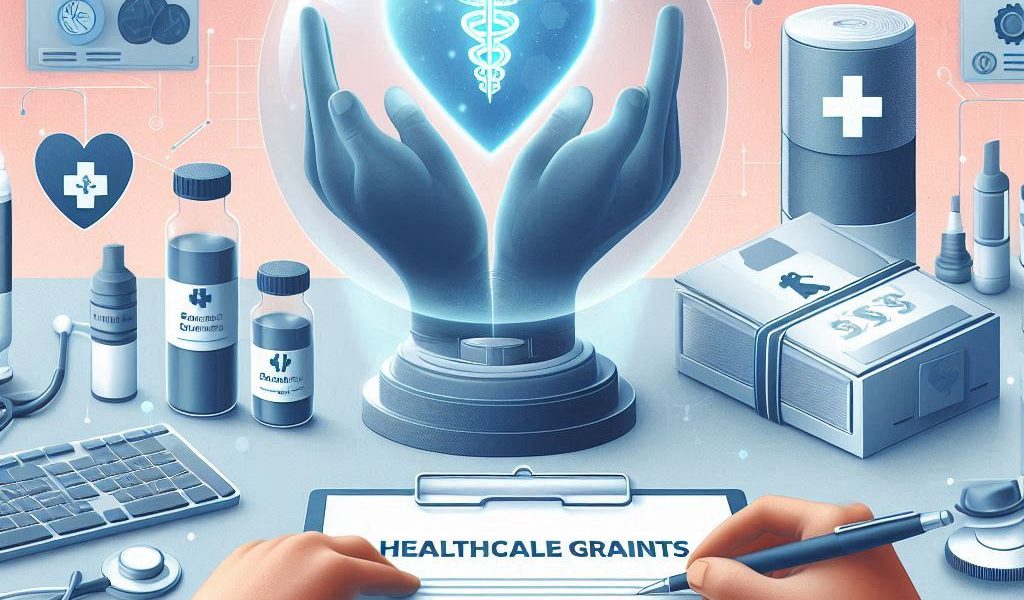The healthcare sector plays a critical role in every society, providing essential medical services and advancing innovations that improve human well-being. However, establishing and running a healthcare startup or NGO requires significant funding. Fortunately, various government grants and financial assistance programs are available to support medical entrepreneurs, researchers, and nonprofit organizations.
In this article, we will explore the best healthcare grant opportunities, their benefits, eligibility criteria, and the application process.
Understanding Healthcare Grants
Healthcare grants are financial aids provided by governments, international organizations, and private foundations to support medical innovation, healthcare infrastructure, and patient care initiatives. These grants help startups and NGOs to:
- Develop and deploy new medical technologies
- Improve healthcare accessibility and affordability
- Conduct medical research and clinical trials
- Strengthen healthcare services in underserved communities
- Expand telemedicine and digital healthcare solutions
Unlike loans, healthcare grants do not require repayment, making them a crucial funding source for organizations with limited financial resources.
Top Government Healthcare Grants
Various government bodies and organizations offer grants to support healthcare startups and NGOs. Below are some of the most prominent funding opportunities available.
1. National Health Mission (NHM) Grants
Country: India
The NHM aims to strengthen healthcare services, especially in rural areas, by funding medical facilities and community health programs.
Key Features:
- Financial support for setting up primary healthcare centers (PHCs)
- Grants for maternal and child health programs
- Support for training healthcare workers
Eligibility:
- NGOs, healthcare startups, and hospitals
- Organizations working in rural and semi-urban areas
2. Biotechnology Ignition Grant (BIG)
Country: India
Managed by the Biotechnology Industry Research Assistance Council (BIRAC), this grant supports innovative biotech startups.
Key Features:
- Funding of up to ₹50 lakh for early-stage research
- Supports development of new drugs, vaccines, and diagnostics
- Encourages collaboration between research institutions and startups
Eligibility:
- Indian biotech startups and researchers
- Must be a registered company with an innovative healthcare idea
3. Small Business Innovation Research (SBIR) & Small Business Technology Transfer (STTR) Programs
Country: USA
These federal programs provide funding for research-focused healthcare startups developing innovative medical solutions.
Key Features:
- Phase I: Grants of up to $150,000 for feasibility studies
- Phase II: Grants of up to $1 million for product development
- Encourages commercialization of healthcare innovations
Eligibility:
- US-based small businesses engaged in R&D
- Must demonstrate strong commercialization potential
4. Horizon Europe Healthcare Grants
Country: European Union
Horizon Europe funds research and innovation projects in the healthcare sector.
Key Features:
- Supports projects in digital health, AI in medicine, and biotechnology
- Multi-million-euro funding opportunities for startups and research organizations
- Encourages cross-border healthcare collaborations
Eligibility:
- European startups, research institutions, and NGOs
- Must align with EU healthcare priorities
5. Wellcome Trust Grants
Country: Global (UK-based organization)
The Wellcome Trust funds groundbreaking healthcare research, particularly in infectious diseases and global health challenges.
Key Features:
- Grants ranging from £100,000 to £10 million
- Supports drug development, mental health programs, and medical research
- Encourages partnerships between startups and universities
Eligibility:
- NGOs, researchers, and healthcare startups worldwide
- Must contribute to healthcare advancements
6. Global Innovation Fund (GIF)
Country: Global
GIF supports healthcare innovations that address major public health challenges.
Key Features:
- Grants ranging from $50,000 to $15 million
- Focuses on low-income and developing countries
- Encourages impact-driven healthcare solutions
Eligibility:
- Healthcare NGOs and startups with scalable solutions
- Must target underserved populations
Benefits of Healthcare Grants
Government and private healthcare grants offer numerous advantages:
- Financial Support: Reduces the burden of raising capital for healthcare projects.
- Encourages Innovation: Provides funds for R&D and the development of new treatments.
- Improves Public Health: Enables NGOs and startups to provide affordable healthcare services.
- Reduces Economic Barriers: Allows medical startups to scale operations without relying on expensive loans.
How to Apply for Healthcare Grants
Step 1: Identify Suitable Grants
- Research funding options available in your country.
- Check government portals like BIRAC, SBIR, NHM, and EU funding websites.
Step 2: Check Eligibility Criteria
- Ensure your organization meets the grant requirements.
- Verify if the funding supports your specific healthcare initiative.
Step 3: Prepare Required Documents
- Business registration and tax certificates
- Project proposal outlining objectives and expected impact
- Financial statements and proof of previous projects (if applicable)
Step 4: Submit Application
- Apply through official government or funding agency portals.
- Upload all necessary documentation.
Step 5: Follow Up and Compliance
- Monitor your application status.
- Ensure compliance with grant utilization terms and conditions.
Challenges and Considerations
While healthcare grants provide crucial financial support, they come with challenges:
- Highly Competitive: Many organizations apply for the same grants.
- Strict Compliance Regulations: Recipients must follow funding guidelines.
- Lengthy Approval Processes: Grant disbursement may take several months.
To increase your chances of securing a grant, consider partnering with experts who specialize in grant writing and compliance.
Conclusion
Healthcare grants offer essential funding opportunities for medical startups and NGOs, enabling them to innovate, expand, and improve public health services. By leveraging these grants, organizations can access capital without financial strain, drive medical advancements, and contribute to global healthcare improvements.
For healthcare entrepreneurs, staying informed about funding opportunities, preparing strong grant proposals, and meeting compliance requirements are key to securing financial aid.



